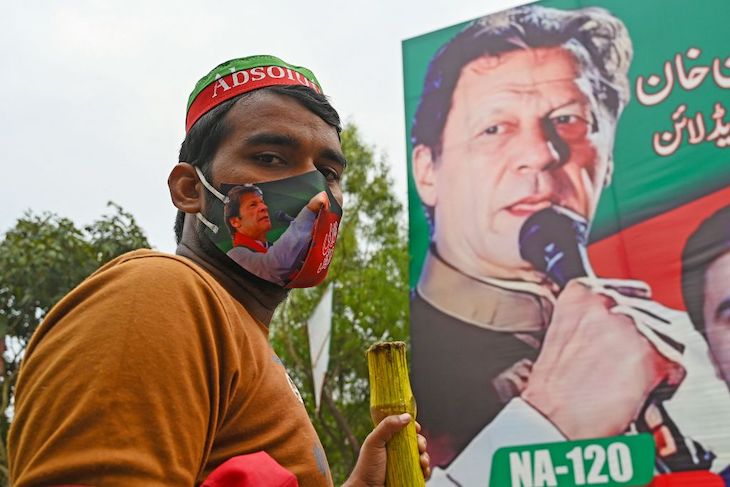Democracy and the rule of law have always struggled to take hold in Pakistan, a country in which no elected prime minister has yet completed a full term in office and where the military has been in power for nearly half of its history.
The latest antics of Imran Khan, the former prime minister, do little to instil confidence that rules count for much in Pakistan. There were violent clashes between Khan’s supporters and police when they came to arrest him this week for failing to appear in court on charges of illegally selling state gifts during his four-year rule.
The police operation was called off temporarily while the authorities grappled with how best to deal with the protests as well as the public embarrassment of the country’s former leader avoiding arrest, appearing to place himself above the law.
Khan denies all wrongdoing and claims the charges are a plot to discredit him
Khan denies all wrongdoing and claims the charges are a plot to discredit him, urging his followers to fight on, tweeting that there was a plot ‘to abduct & assassinate’ him. Khan‘s wild rhetoric runs the risk of more political chaos and instability in a country that is already on the brink of economic collapse.
The legal charges against Khan came soon after he was removed from office in a parliamentary vote early last year. Since then, he has been holding mass rallies across the country and calling for an early general election. His demands have been rejected by the current government, with elections scheduled to take place as planned this October.
The bigger problem for the authorities is that Khan’s words fall on fertile ground in a country that has a troubled history of turning — sometimes violently — on its leaders. One former prime minister, Zulfikar Ali Bhutto, was hanged in 1979 after he was overthrown by an army coup.
His daughter, Benazir Bhutto, served twice as prime minister and was assassinated during an election rally in 2007. Nawaz Sharif, Pakistan’s longest-serving civilian prime minister and the brother of the current leader, was in office from 1990 to 1993 and from 1997 to 1999, when he too was deposed in a coup. Khan is just the latest in this never-ending political cycle.
While Pakistan’s elites play the blame game, the country is falling apart. More than 800,000 Pakistanis left in search of better prospects abroad last year. Inflation in February was a staggering 31.5 per cent, the highest since 1974; the currency plunged by almost a third in value last year. Pakistan’s foreign debts amount to about £83 billion: worryingly it owes almost a third of this money to China alone. Last year’s catastrophic floods cost tens of thousands of lives, displaced millions more, and left behind a trail of destruction.
Dealing with this would be a challenge for any country, but for Pakistan it is almost insurmountable. It is a mystery why so many Pakistanis choose to put their faith in Khan, a former cricketer and professional playboy, with little in the way of political experience, as the man to save the country in its hour of need.
In coming to power in 2018, Khan held out the promise of a ‘new Pakistan’, an end to corruption and more jobs to help the poor. It didn’t happen. He has been quick to play up to the prejudices of Pakistan’s hardline religious groups — for example, he blamed the way women dressed for a rise in rape cases across the country, suggesting they should cover up to prevent men being tempted.
Khan has been equally maladroit on the international stage. He visited Russia on the eve of the Ukraine invasion, prompting widespread international concern as well as alienating some in Pakistan’s all-powerful military establishment. Khan has spoken of a US-led plot to remove him as punishment for his Russia trip. It is desperate stuff. Even so, the cyclical nature of Pakistani politics means former prime ministers — even Khan — can rebound and return to office; after all, it has happened before.
Whatever happens next, two things are abundantly clear: Pakistan is in a huge mess, almost entirely of its own making; and Imran Khan, like a long list of failed leaders before him, is not the answer to the country’s problems.







Comments